
Botox, a common non-surgical cosmetic procedure, has changed everything for many people who want to get rid of wrinkles and fine lines. Although the effects are frequently successful, some individuals report fading with time, raising questions regarding Botox resistance. Let's explore the causes of any potential resistance to this treatment and identify methods for extending the effects of Botox.
Botox resistance describes a situation in which a patient gradually notices lessening or diminished effects from Botox injections. In certain situations, the symptoms might subside more quickly, while in others, there might not be much of a difference after treatment.
Several elements could lead to the development of resistance, including:
It's crucial to remember that genuine Botox resistance is rather uncommon. Only a small percentage of frequent Botox users, according to studies, acquire neutralizing antibodies. Most patients who experience resistance may actually be dealing with other problems, such as improper dosage or a toxin's naturally quick metabolism.
If you're worried that your body will become resistant to Botox, think about the following tactics:
If you think your resistance is growing:
Consult with Your Provider: Talk to your practitioner about your worries. They could modify the dosage, alter the injection method, or look into alternate therapies.
Consider Other Treatments: If Botox is no longer working, you might want to look into additional treatments including fillers, laser resurfacing, or other skin rejuvenation techniques.
While some people worry about Botox resistance, it's important to realize that genuine resistance is uncommon. You can continue to profit from Botox for years to come by choosing skilled practitioners, customizing treatments to individual needs, and comprehending the underlying issues.
Making judgments about your treatments based on knowledge of potential Botox resistance is important. To guarantee you're receiving the finest care possible, always place a priority on being honest with your provider. Always aim for a refreshed appearance that brings out your inherent beauty and gives you more self-confidence.
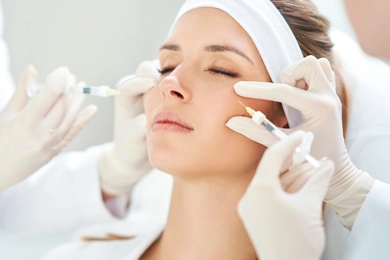 Unlocking the Secrets of Botox: A Comprehensive Guide
Unlocking the Secrets of Botox: A Comprehensive GuideA mainstay in the aesthetic treatment sector, Botox is a word that conjures up images of youth and beauty. Given its potent anti-aging properties and capacity to smooth wrinkles, it is understandable why mil ...
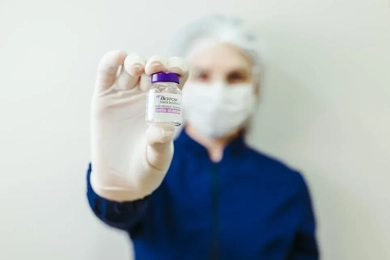 Botox: The Magic Medicine for Everything
Botox: The Magic Medicine for EverythingBotox, or Botulinum toxin as it is known scientifically, has long been associated with aesthetic surgeries meant to minimize wrinkles and fine lines. ...
 12 Unexpected Botox Benefits You Won't Believe
12 Unexpected Botox Benefits You Won't BelieveBotox, a word frequently associated with the realm of cosmetic beauty, conceals a slew of unexpected benefits beneath its surface that go beyond its conventional use. ...
 A Beginner's Guide to Botox: What to Expect and How to Prepare
A Beginner's Guide to Botox: What to Expect and How to PrepareThis comprehensive guide will outline the following: considerations to bear in mind, anticipations during and following a Botox treatment, and pre-treatment precautions. ...
 Botox Didn't Work; What Is the Reason for This? What Should I Do?
Botox Didn't Work; What Is the Reason for This? What Should I Do?Botox adverse effects may be attributed to a multitude of factors, including the practitioner's skill, the product's quality, or the physical attributes of the recipient. ...
 50 Things You Need to Know About Botox
50 Things You Need to Know About BotoxBotulinum toxin, which is created by the bacterium Clostridium botulinum, is the source of the drug known as Botox. Although it has a reputation for being able to minimize facial wrinkles, its roots are in m ...
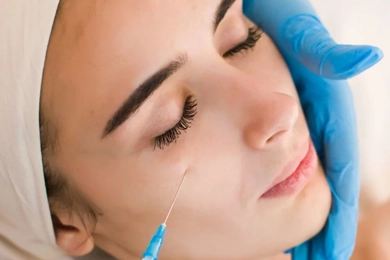 3 Zone Botox
3 Zone BotoxBotox continues to lead non-surgical aesthetic therapies in the large and ever-evolving field of cosmetic treatments. While the fundamentals of Botox are generally understood by most individuals, the idea of ...
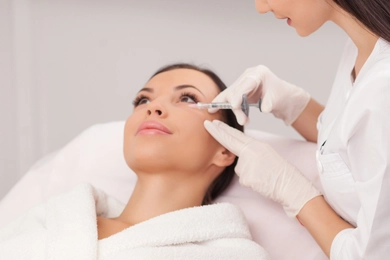 When Does the Effect of Botox Begin and How Long Does It Last?
When Does the Effect of Botox Begin and How Long Does It Last?Botox has grown to be one of the most popular cosmetic procedures in the globe due to its effectiveness in smoothing out wrinkles and fine lines. Potential patients frequently inquire about the beginning and ...
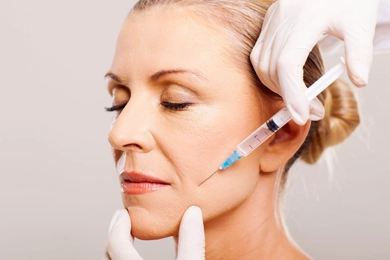 Post-Botox Care: The Do's and Don'ts for Optimal Results
Post-Botox Care: The Do's and Don'ts for Optimal ResultsWith millions of procedures conducted each year, Botox has solidified its position as a top non-surgical aesthetic treatment. Many people appreciate it due to its capacity to lessen wrinkles and give a more ...
 How Frequently Should I Get Botox?
How Frequently Should I Get Botox?Botox has become a buzzword in the aesthetic industry, renowned for its ability to smooth wrinkles and rejuvenate the complexion. However, a common conundrum that many encounter is determining the optimal fr ...
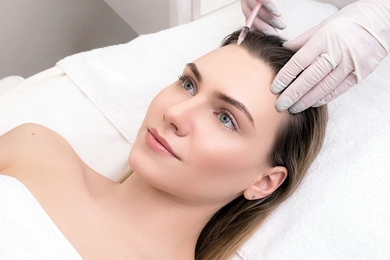 Preventative Botox
Preventative BotoxPreventative Botox stands out as a bright prospect for many in a time when the quest for perpetual youth has gained considerable traction. This cutting-edge technique is becoming more and more well-liked as ...
 Botox vs. Filler
Botox vs. FillerBotox and dermal fillers stand out as two of the most popular and successful procedures in the cosmetic business for restoring a young appearance. ...
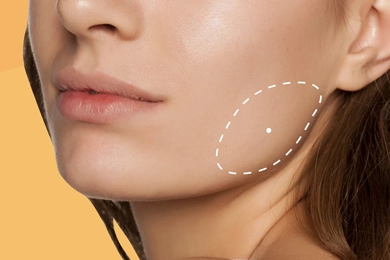 A Comprehensive Look at Botulinum Toxin
A Comprehensive Look at Botulinum ToxinBruxism is the medical term for teeth grinding or clenching, a common condition that many people experience at some point in their lives. ...
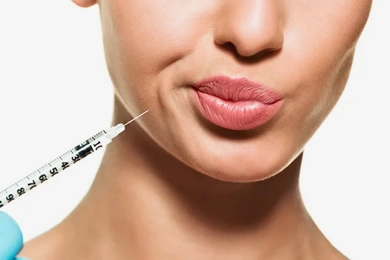 Can The Effects of Botox Be Undone?
Can The Effects of Botox Be Undone?The neurotoxin known as Botox, also known as botulinum toxin type A, has become extremely popular in cosmetic dermatology due to its capacity to minimize the appearance of fine lines and wrinkles. ...
 I Have Had Botox Done, But I Am Not Satisfied
I Have Had Botox Done, But I Am Not SatisfiedThe outcomes of Botox, however, can vary from person to person as with any medical procedure, and occasionally, patients may not be entirely satisfied with the results. Here is what you should do if you find ...
 How Long Does Botox Take To Work, Timeline And More
How Long Does Botox Take To Work, Timeline And MoreBotox is a well-known cosmetic procedure that helps to hide facial wrinkles and fine lines. Yet when considering Botox, one of the most frequently asked queries is how long it takes to start working. We will ...
 How Long Does Botox Last?
How Long Does Botox Last?A common cosmetic procedure that aims to lessen the appearance of wrinkles and fine lines is botox. It is frequently applied on frown lines, crow's feet, and forehead lines. But one concern that many people ...
 How to Make Botox Last Longer
How to Make Botox Last LongerHow to Make Botox Last Longer It functions by preventing the signals that tell muscles to contract, which helps the skin become smoother. While Botox's effects are transient, there are strategies to extend i ...
 Botox Aftercare: Things you Should Avoid After Botox Treatment
Botox Aftercare: Things you Should Avoid After Botox TreatmentWhile Botox is a relatively safe procedure, it is important to follow proper aftercare instructions to ensure the best results. In this blog post, we will discuss things you should avoid after Botox treatmen ...
 What Happens If I Stop Getting Botox Injections?
What Happens If I Stop Getting Botox Injections?For many years, people have used Botox, a common cosmetic procedure, to lessen the appearance of wrinkles and fine lines. It functions by obstructing the signals that travel from the nerves to the muscles, w ...
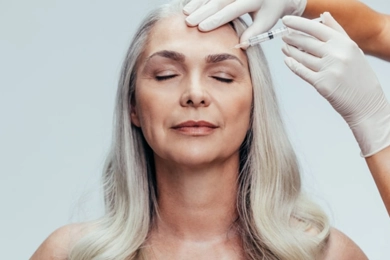 Can I Exercise After Botox?
Can I Exercise After Botox?In this article, we will examine the effects of exercise on Botox and offer some guidelines for exercising safely after receiving the popular cosmetic procedure. ...
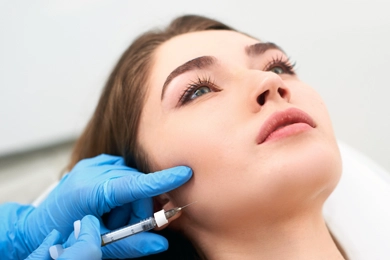 When Will You See Results After Masseter Botox?
When Will You See Results After Masseter Botox?There are several therapy options for bruxism, or the unintentional grinding or clenching of teeth. Injections of masseter Botox are one of the most well-liked and successful therapies. ...